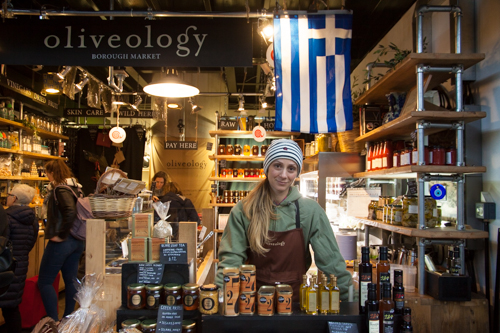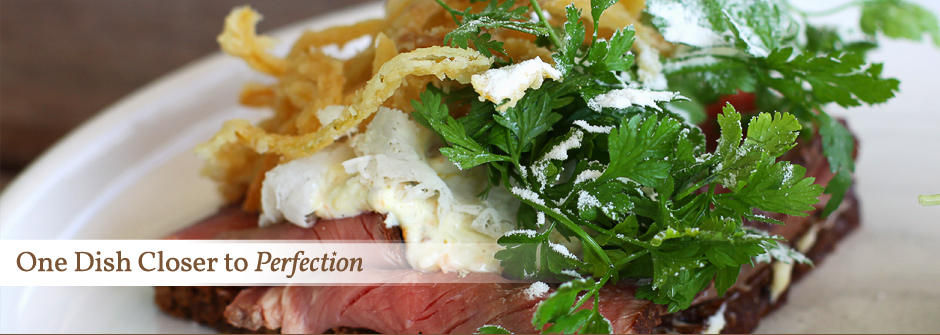Happy (Greek) New Year!
 Monday, January 1, 2018 at 11:06AM
Monday, January 1, 2018 at 11:06AM 
This article first appeared on the Borough Market website as the final in a 3 part series exploring a few festivals celebrated in December, other than Christmas, and the foods associated with them. I interviewed trader Marianna Kolokotroni, who grew up in Athens, to get some local insight on the festivities.
This holiday season Marianna Kolokotroni is planning to find a boat for her shop Oliveology at Borough Market. In Greece it is traditional to decorate a boat rather than a Christmas tree “because Greeks were sailors and surrounded by sea.”
Unable to get back to Greece for Christmas, she tries to keep the Greek traditions alive at the shop, which “in a way is my home now”. In fact, one of the reasons she started Oliveology was because she had decided to stay in the UK after studying and she was keen to retain “a link between home and my roots with Greece and Greek produce.” She promotes traditional recipes on her blog and tells customers how things used to be made.
“In Greece, food is something that brings people together, particularly around big celebrations,” she says. “Christmas and New Year is mostly about spending time together as a family. In Greece, in general, this is very important.”

As well as the boat, she is trying to source a piglet for the staff Christmas party. “On New Year’s Eve, my Mum always did a small piglet,” she tells me. “In the old times, meat was a rare treat only eaten on festive occasions. A family would raise a pig especially to slaughter and eat on Christmas Day or New Year’s Day.”
A person can reveal a lot about their cultural or religious identity by what they do and do not eat. It is equally, if not more, common for religions to prohibit certain foods as it is for them to prescribe them for particular events or celebrations. Some religions proscribe certain foods at all times, while others, such as the Greek Orthodox Church, prohibit some foods, usually meats, during periods of fasting.
In The World Religion’s Cookbook, Arno Schmidt and Paul Fieldhouse suggest several reasons for these dietary laws. With regards to fasting, it is not only about showing a devotion to spiritual, rather than worldly values, but also about the “conservation and judicious use of scarce resources”. Marianna tells me that “fasting was a very important thing before any type of big celebration in Greece. They would fast for 40 days before having all this food. People will sacrifice all these things so they are able to enjoy this massive meat feast.”
She has had difficulty sourcing a piglet, as we tend to raise them for a lot longer in the UK, but a traditional dish that she always makes at New Year is Vasilopita. The literal translation is ‘St Basil’s Pie’, but her mother’s recipe is more like a cake. It can be a cake or a pie, it depends on which region of Greece one is from, but it always has a coin or token hidden inside it. “This coin has no monetary value, but more of a symbolic value. It is said that whoever gets the coin will have prosperity and luck for the full year.”

The entire family gathers around the table either on New Year’s Eve or in the morning on New Year’s Day for the cutting of the cake. Traditionally, the father of the house performs the ceremony. He crosses the cake 3 times, then cuts all the pieces equally. St Basil usually gets the first slice. He was a 4th century bishop of Caesarea and one of the founders of the Greek Orthodox Church. New Year’s Day is his feast day.
In Marianna’s family they cut the first piece of cake for Christ, then one for the home and then for each member of the family from eldest to youngest. I ask her if the religious element of the ceremony is important to her. “For me it is more about family,” she says. “Even when I am not there, they always cut a piece for me.” She does the same for absent staff on her stall and for those who work remotely for her from Greece. Marianna is keen to keep these traditions alive because she worries that “these things are very easily forgotten nowadays.”
“New Year’s Eve is a very important day because it’s a day to reflect and to think what you have done the previous year and what is going to be your resolution” she says. “It’s mostly a day of reflection and gratitude.”

See my recipe for vasilopita here or on the Borough Market website.
 Vix |
Vix |  Post a Comment |
Post a Comment |  New Year's Day,
New Year's Day,  St Basil's Day in
St Basil's Day in  Symbolism
Symbolism 
Reader Comments